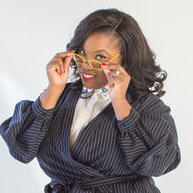Chicago Trademark Attorneys & Lawyers
How it Works

Noam Raz

Jonathan Pasky

Erik Rakoczy

Kalpesh Patel
.jpg)
Daliah Saper

Eric Onyango

Jeremy Spoon

Billy Joe Mills

Ashley Kirkwood

Ariel Gurian
Chicago Trademark Lawyers
Legal Tips and Information
What Makes for a Valid Trademark?
In the startup world, trademark issues are rampant. Many teams struggle to develop unique marks for their business, products, and services – and may be somewhat lost with regard to the law surrounding trademarks.
When developing a mark that you intend to protect against potential infringement, it is crucial that you and your team understand what makes a trademark valid and enforceable under the law. Fortunately, the law (on the surface) is fairly uncomplicated: only distinctive trademarks are enforceable.
So, how do you know whether your mark is distinctive?
In the United States, there are certain core elements that – separately – function as the basis for a valid, distinctive trademark.
Arbitrary or Fanciful
If your mark is deemed arbitrary or fanciful, it will likely be considered to have inherent distinctiveness, and will therefore enjoy a high degree of trademark protection.
Fanciful marks have no meaning outside of the trademark context. They are created for exclusive purpose of defining and demarcating a unique product, service, or company. Google, Exxon, and Clorox are examples of fanciful marks with substantial brand recognition.
An arbitrary mark may have its own meaning outside of the trademark context, but this meaning is unrelated to the trademark. Apple (the company) is a famous example of an arbitrary mark. “Apple” refers to a type of fruit, of course, but the mark is used in a completely arbitrary manner to refer to the technology company and its products/services.
Suggestive
Suggestive marks are considered inherently distinctive and therefore entitled to a high degree of trademark protection, though not to the same degree as arbitrary and fanciful marks. A suggestive mark is one in which the name does not directly or obviously describe the character of specific products or services, but with some imagination, is evocative of such character. For example, the bus company name Greyhound is suggestive of speed, which is evocative of the character of the service provided, but this connection requires some imagination.
Descriptive
Descriptive marks are not ideal, but are quite common in the startup world. A descriptive mark – both in and out of context – to some degree describes, and does not merely suggest, the character of the relevant products or services. Descriptive marks are not considered inherently distinctive, and do not enjoy any trademark protection by default.
To entitle your descriptive mark to trademark protection, you must show that it acquired secondary meaning. A mark will be deemed to have acquired secondary meaning if the evidence demonstrates that the mark has come to be associated with a particular product, service, or company. For example, if you sell a product marked as “Jar of Beeswax,” you would have to show that the mark has come to be associated with your product specifically, and not with “beeswax jars” generally.
Generic
Generic marks are not entitled to any protection, and may not acquire secondary meaning. To put it bluntly: a generic mark can never be protectable. Generic marks typically refer to the categorical name of a product. For example, a pen company selling a ballpoint pen product called “Ballpoint Pen” would not be able to protect that mark, as it generically names the category of the product.
The Different Levels of Trademark Registration
Obtaining trademark protection is rather uncomplicated, though there are several options available with various advantages and disadvantages. As the options may confuse or overwhelm startups, let’s break them down into simpler, easier-to-digest parts.
Federal Trademark Registration
To register your mark federally, you’ll first have to show that your mark is being used and/or advertised across state lines (i.e., that it is not limited to one state) or is being used and/or advertised internationally. Then, you’ll have to register your mark with the US Patent and Trademark Office (USPTO).
Federal registration provides a number of important benefits: 1) it gives notice to potential trademark infringers about the existence of your mark; 2) it enables you to sue a defendant for infringement; 3) and federal registration grants you a presumption of validity and ownership as to the mark.
Illinois State Trademark Registration
If your mark is not being used, promoted, etc. across state lines or internationally, you may only be entitled to register it in the state where it is being exclusively used and promoted – here, the state of Illinois.
If you have a federal trademark registration, you do not need to register on a state-by-state basis.
With state registration in-hand, you are entitled to sue defendants who infringe upon your state trademark. You cannot sue those who infringe beyond state lines.
A skilled Chicago trademark attorney will ensure that you conduct an extensive trademark search to suss out conflicting trademarks in other state jurisdictions and in the federal register. If another party has an existing trademark, it may preempt your new Illinois-registered trademark.
Common Law Default Protection
You are not required to register a trademark to enjoy trademark protection, though it is good policy to do so. In the United States, you may be entitled to common law trademark protection if you are the first to use a given mark in the stream of commerce.
For example, suppose that you develop a product called “SleekTan,” which is a new tanning cream. You sell it over the years without ever having registered in Illinois or federally with the USPTO. If you were the first to ever use the name “SleekTan” in the stream of commerce, then you likely are entitled to common law trademark protection. You can sue infringers on the basis of this protection.
The problem with common law protection is that it is rarely applicable to geographic regions in which the mark is not established. Common law protection applies to those geographic regions where the mark has demonstrated brand recognition. If you use a mark locally, you may not be able to prevent a company across the country from using the same mark and building a significant reputation with it. If you intend to expand your business beyond your geographic foundations, then it is important to register your mark with the help of a trademark lawyer.
Trademark Infringement
Once you’ve entered the stream of commerce with your mark, you and your team may occasionally discover potential trademark infringement issues, both in your industry and outside of it. The possibility of trademark infringement can be quite frightening for a budding startup. Most startups invest a substantial amount of money, time, and energy into developing a cohesive, popular brand, and trademark infringement can stall company momentum.
For this reason, it is generally recommended that startups work with an experienced trademark attorney. Infringement concerns must be dealt with swiftly so as to minimize brand damage.
What Counts as Infringement?
A defendant will be found to have infringed on your trademark if it can be shown that consumers will be confused as to the source of the goods or services associated with the mark.
Whether a regular consumer would likely be confused is a matter for the courts to decide. They will weigh all the evidence and determine whether a consumer is likely to be confused between the marks at-issue. The factors include, but are not limited to: a) the level of protection granted to the mark itself (remember, arbitrary and fanciful are granted the highest level of protection, then suggestive, then descriptive, then generic); b) the similarity of the marks to each other, both in terms of content and aesthetic; c) evidence of consumer confusion; d) marketing overlap; and e) the defendant’s intent to infringe.
This can all be a bit overwhelming at first, so let’s clarify with an example.
Suppose that you develop a product called “SleekTan,” a tanning cream. Another company later develops a glossy wood epoxy called “Sleek Wood Tan,” meant for coating wood decks.
From the facts presented, it is likely that no infringement has occurred, despite the similarity of the marks. The mark “SleekTan” is suggestive, and is entitled to a high degree of protection, but the marks are still different in content. Further, consumers are unlikely to be confused since the products are used for entirely different purposes. The marketing channels used are also likely to be different, given the products’ function. Even if you were able to show that the defendant intended to infringe on your product, the court may find that no infringement actually occurred.
As trademark infringement is quite specific to the facts of the case, it is important that you work with an experienced, knowledgeable Chicago trademark lawyer. It is worth seeking the consultation of a lawyer prior to any infringement, as your lawyer will be able to advise you on the strength of your trademark protection and how to best preserve your mark (through registration, advertisement, etc.).
Why use UpCounsel to hire a Chicago Trademark Attorney?
Average experience
You always get experienced professionals and high caliber work.
Faster
Your work gets done quickly because professionals are always available.
More cost effective
We use technology to cut traditional overhead and save you thousands.
UpCounsel has been talked about in:
Legal Services Offered by Our On-Demand Chicago Trademark Attorneys
Our experienced Chicago trademark attorneys & lawyers represent individuals and businesses with everything they need to secure and protect their trademarks. Our attorneys can help individuals with everything from trademark clearance searches to determine whether the desired mark is available for adoption, use, and registration. By reviewing the search reports thoroughly, they can conclusively determine the extent to which a mark is already being used and the potential success of filing a trademark.
Trademark licensing can be complex, but our trademark attorneys have experience drafting agreements on behalf of both licensees and trademark owners - thus allowing you to capitalize on your valuable intellectual property. Our Chicago trademark attorneys can also draft and file your trademark with the United States Patent and Trademark Office (USPTO), including Intent to Use and Use in Commerce applications.
Our attorneys can also help protect your trademark around the globe by assisting clients with filing trademark applications under the Madrid Protocol, which allows trademark holders to obtain protection in multiple countries by filing a single application.
Improve Your Legal ROI with Affordable Trademark Attorneys that service Chicago, IL.
What Our Customers Have to Say
"UpCounsel gives me access to big-firm lawyers minus the big-firm price tag. I work with several attorneys on the platform and there are never surprises...I always receive quality legal work at competitive rates that larger firms simply cannot match."
"Every startup needs to know about UpCounsel. We found great attorneys at great prices and were able to focus our resources on improving our business instead of paying legal bills."
"Before UpCounsel it was hard for us to find the right lawyer with the right expertise for our business. UpCounsel solves those problems by being more affordable and helping us find the right lawyer in no time."
Related Articles
Trade Dress Infringement
- 10 min read
What Is Trade Dress Infringement?
Trade dress infringement occurs when one company uses trade dress similar enough to another's to cause a "likelihood of confusion" in an ordinary buyer's mind. The legal term "trade dress" refers to the general appearance of a product or its packaging that reveals its source to customers. Think of McDonald's Happy Meal boxes, for example. Companies who provide services can also have trade dress in the atmosphere or decor in which those services are provided. Picture the high ceilings and Grecian columns of The Cheesecake Factory restaurants, for instance.
While a trademark is a word, trade dress is a visual impression. Just like
...
Read MoreTrademark Disclaimer
- 3 min read
What is a Trademark Disclaimer?
A trademark disclaimer is a statement placed in a trademark application or registration to show that the owner doesn't claim rights to a portion of the trademark, usually words considered to be generic, descriptive or informational.
Why is a Trademark Disclaimer Important?
Disclaiming part of the text in a trademark application shows the United States Patent and Trademark Office that you are not requesting exclusive rights to a term that can't be registered according to law. If two companies are applying for similar trademarks, and your company disclaims the use of words that can't be registered, while the other comp
...
Read MoreTrademark Blog Name
- 5 min read
Updated October 29, 2020:
How to Trademark a Blog Name
- Visit the United States Patent and Trademark Office (USPTO) website.
- Browse the Trademark Electronic Search System (TESS) database to see if anyone else has already registered your blog name in the appropriate category.
- Submit your blog name trademark application with the filing fee. The USPTO charges about $300 for trademark registration.
What Is a Blog Name Trademark?
A trademark is a brand that's
...
Read MoreTrademark Licensing
- 13 min read
Updated October 27, 2020:
What Is Trademark Licensing?
Trademark licensing is the process by which a registered trademark owner, called a licensor or proprietor, allows another party, called a licensee, to make and distribute specific products or services under the licensor's trademark agreement. Trademark licensing is a type of merchandise agreement.
The licensor receives a certain amount of money or royalties, a percentage of all sales, in exchange for sharing the trademark. This compensation is also called consideration. Fashion and consumer products concerned with sports and entertainment are often sold under a trademark licensing agreement.
The licensee usually creates a trademark licensing agreement, but a licensor can also
...
Read More